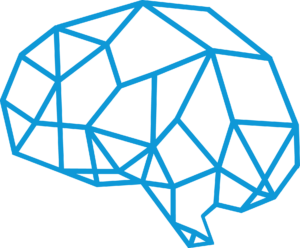In recent times, ChatGPT has found its place in the sun, offering answers to a spectrum of queries ranging from culinary concoctions to life’s broader questions and professional correspondence. However, lurking within the premium version of ChatGPT, known as ChatGPT4, is a feature that could significantly refine your approach to data analysis.
What is the”Advanced Data Analysis” feature of ChatGPT4?
The “Advanced Data Analysis” feature in ChatGPT4 represents a groundbreaking beta capability currently gaining traction in the field of data analytics. This innovative feature streamlines the process of integrating and scrutinizing data from Excel spreadsheets, revolutionising the traditional approach to data analysis. In a practical application, I had the opportunity to test this feature by conducting a customer segmentation analysis for a client. This involved using anonymized survey data contained within a spreadsheet. The efficiency and depth of analysis afforded by this feature were remarkable, making complex tasks like customer segmentation more accessible and insightful, and opening new avenues for detailed and effective data examination.
What stood out was the ease with which I could delve into advanced attitudinal and behavioural customer segmentation, moving beyond the rudimentary 2×2 segmentation often employed by consultants.
Below is a straightforward 5-step guideline to automate intricate customer segmentation:
Step 1: Tidy Up Your Spreadsheet Database
-
- Erase Confidential or PII (Personally Identifiable Information):
- Ensure no sensitive information is included in the data to uphold privacy standards.
- Assign a Unique Title to Each Column:
- Helps in identifying data fields accurately for analysis.
- Remove Merged Cells:
- Facilitates streamlined data processing without any structural hindrances.
- Ensure Consistency Across Results (Identical Spelling, Naming, etc.):
- Consistent data entries are crucial for accurate analysis.
- Erase Confidential or PII (Personally Identifiable Information):
Step 2: Offer Clarity and State Your Objective
-
- Clearly define what you aim to achieve with the data analysis to guide the process effectively.
Step 3: Create Clusters Based on Attitudinal/Behavioural Metrics
-
- Employing the Statistical ‘K-means’ Method:
- Utilising ChatGPT4’s capability to automatically apply clustering algorithms like K-means for segmenting data based on defined metrics such as scoring results, actions taken, etc.
- Employing the Statistical ‘K-means’ Method:
Step 4: Discern Profiling Trends for Each Cluster
-
- Identify common traits or behaviors within each cluster to understand the segmentation better.
Step 5: Craft Cluster Profiles and Assign Titles
-
- Develop detailed profiles for each cluster and name them accordingly for easier reference and understanding.
Each step in this guide is crafted to ensure a smooth and effective data analysis process, aiding in deriving meaningful insights from your data effortlessly using ChatGPT4’s Advanced Data Analysis feature.
The finishing touch? Simply instruct ChatGPT4 to label each respondent with the corresponding cluster and download the revised spreadsheet. And there you have it!
Embracing the ‘Advanced Data Analysis’ feature within ChatGPT4 not only propels your data analysis capabilities but also unveils insightful customer segments that could drive tailored strategies to foster client satisfaction and business growth. This new tool may pave the way towards a more nuanced understanding of customer preferences and behaviours, ensuring your strategies are well-informed and impactful.












